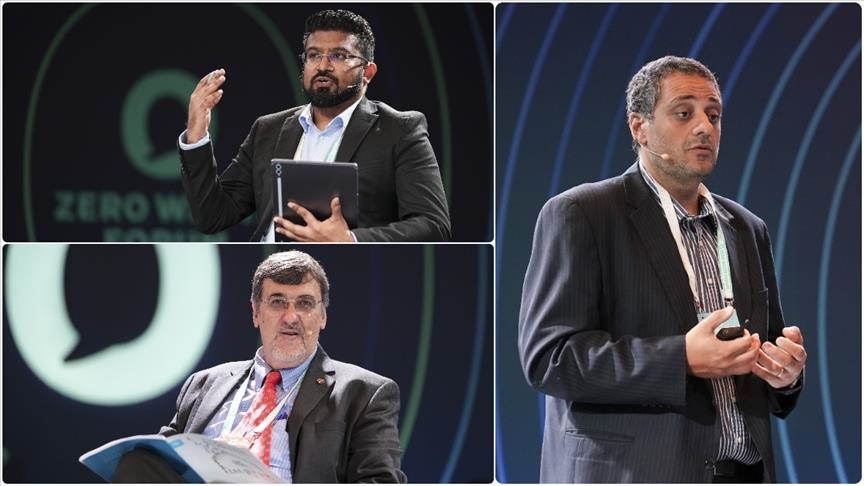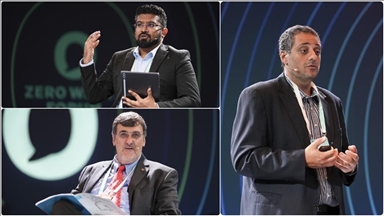International Zero Waste Forum stresses transforming urban waste into sustainable solutions
'If we want to ensure sustainable development, we need policies that put cities at the center,' says UN-Habitat’s deputy director

ISTANBUL
The "International Zero Waste Forum" held on Friday in Istanbul discussed policies and collaborations required to make zero waste a reality in cities that generate the majority of global waste.
The forum, which was organized in collaboration with the Zero Waste Foundation, the Turkish Ministry of Environment, Urbanization, and Climate Change, the Ministry of Agriculture and Forestry, the UN Environment Programme (UNEP), and the UN Human Settlements Programme (UN-Habitat), included a panel titled, "Cities Leading Circular Transformation."
Magash Naidoo, chair of Circular Development at the Council for Sustainable Cities (ICLEI), moderated the panel, which included speakers such as Gabriel Vannelli, director of the environment for Vicente Lopez Municipality in Argentina, and Andre Dzikus, deputy director of the UN-Habitat Executive Director's Office Liaison Office in New York.
Vannelli emphasized that citizen participation is more important than technology or investments in waste management, citing projects near Buenos Aires that have recycled over 100,000 tons of organic waste.
Explaining that they provide training and equipment for composting at home, in neighborhoods, and in public squares to raise environmental awareness among local communities, Vannelli said: “Now there are 100,000 fewer tons of waste in our landfills.”
He also highlighted that the composting process prevents methane emissions, stating, “We are in a much better position than 10 years ago. This shows that we are on the right path.”
2.2B tons of urban waste generated each year
Dzikus noted that global urbanization is rapidly increasing, with 70% of the world's population expected to live in cities by 2050.
This means that 2.5 billion people will move from rural to urban areas, he said, adding: "If we want to ensure sustainable development, we need policies that put cities at the center."
He said 2.2 billion tons of urban waste are generated each year, with approximately 70% disposed of improperly.
Dzikus emphasized the importance of developing systematic waste management solutions for a sustainable future, noting that dumping waste into the environment increases carbon emissions.
Anadolu Agency website contains only a portion of the news stories offered to subscribers in the AA News Broadcasting System (HAS), and in summarized form. Please contact us for subscription options.


